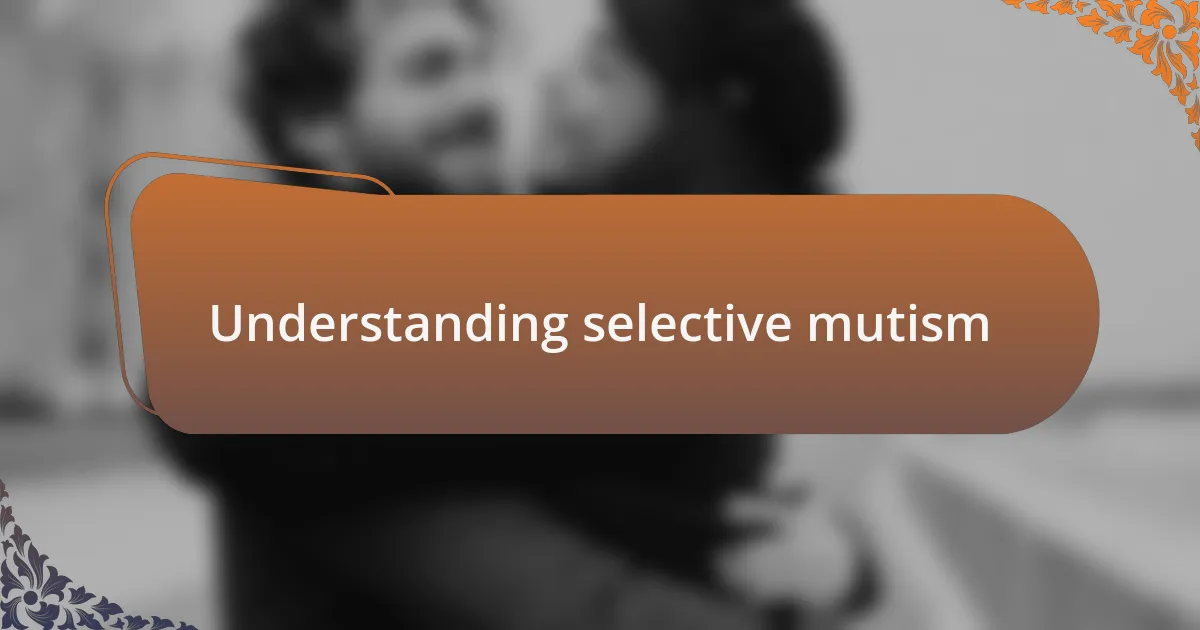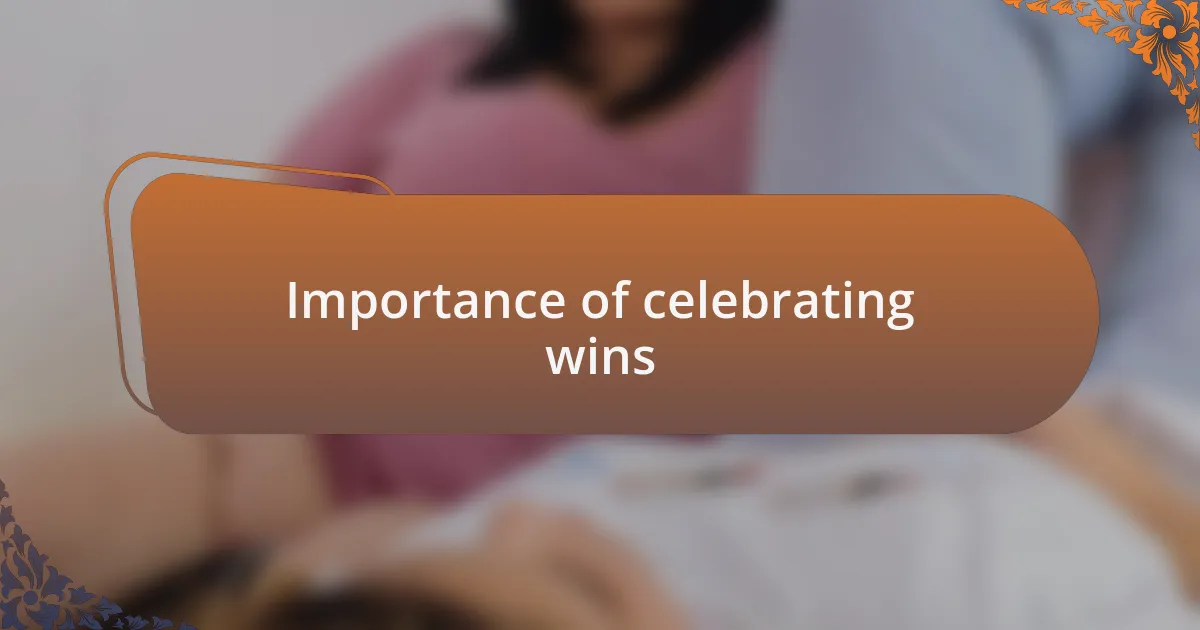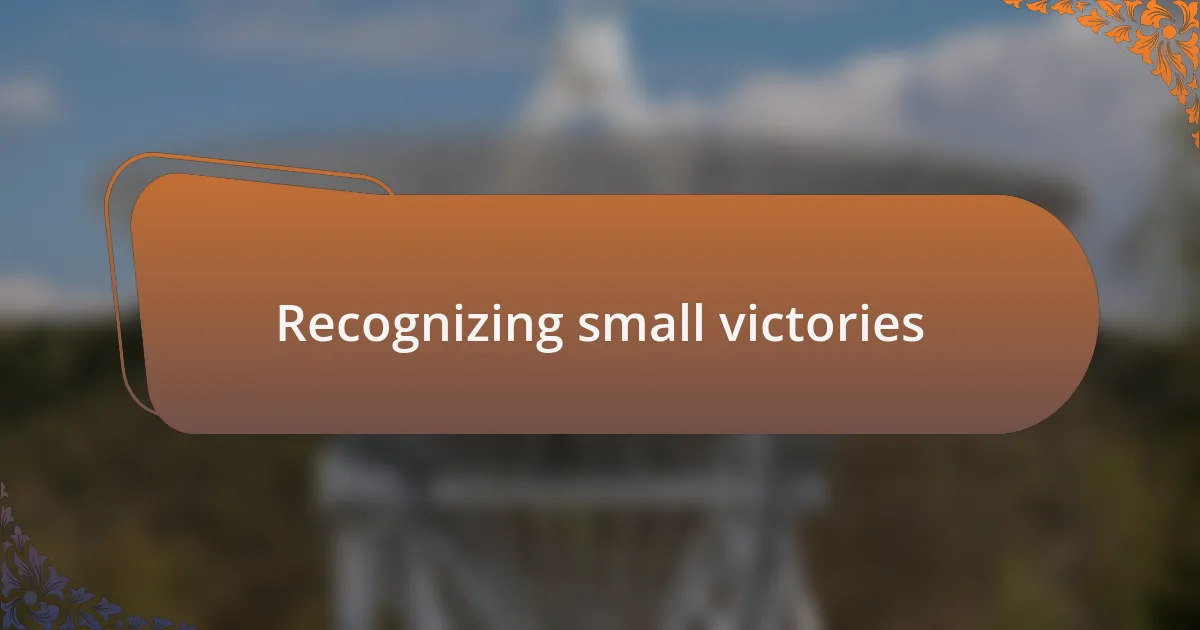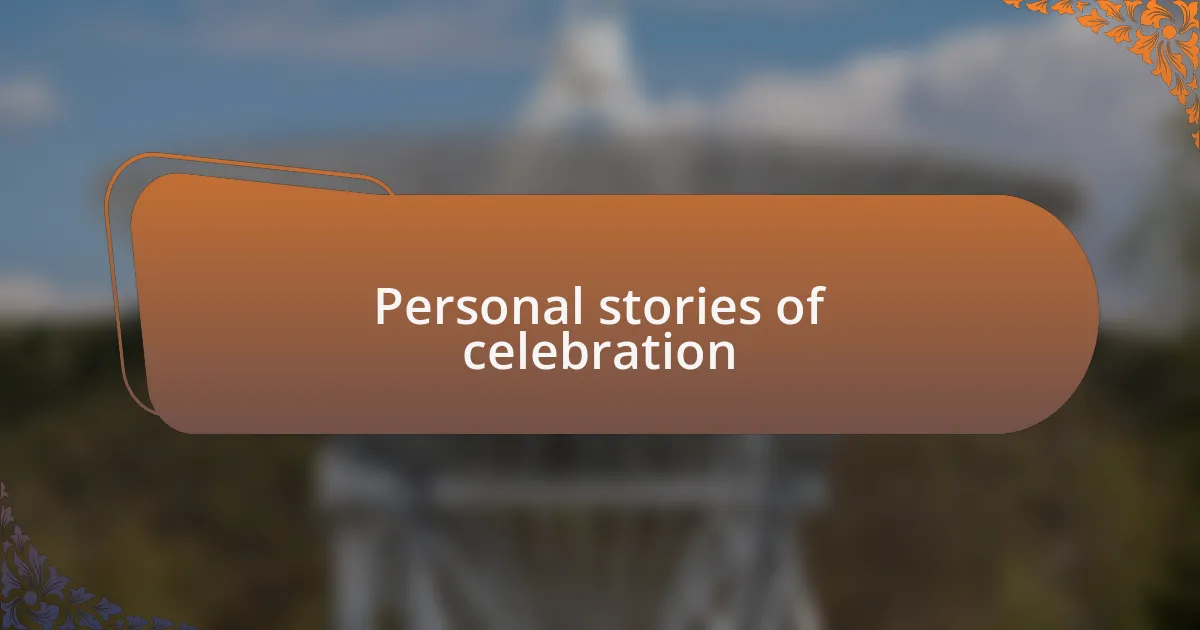Key takeaways:
- Selective mutism is an anxiety disorder where children struggle to speak in certain social situations, often due to intense fear rather than choice.
- Celebrating small victories fosters confidence and resilience, encouraging individuals with selective mutism to take further steps in communication.
- Recognizing and sharing achievements, even minor ones, cultivates a supportive environment and reinforces personal growth.
- Building a support network, comprising friends, family, and professionals, is crucial for individuals facing challenges like selective mutism.

Understanding selective mutism
Selective mutism is a complex anxiety disorder that typically affects children, making it extremely challenging for them to speak in certain social situations despite being verbal in more comfortable settings, such as at home. I remember a time when a young friend, usually chatty at home, would freeze and avoid eye contact in class. It’s heartbreaking to witness their struggle, and it raises the question: How many of us understand just how isolating this experience can be for a child?
At its core, selective mutism is not simply shyness; it’s a profound fear that can stem from various factors, including genetics and environmental influences. Personally, I’ve met parents who feel helpless watching their child’s frustration when words just won’t come out. Reflecting on their experience, I can’t help but wonder how many opportunities for connection are lost when silence becomes a barrier.
Understanding selective mutism requires patience and empathy. It’s essential to realize that those affected aren’t choosing not to speak — they’re often battling intense anxiety that makes communication feel impossible. I’ve witnessed moments where a gentle, supportive approach brought a breakthrough, emphasizing the powerful role of understanding and connection in helping those with selective mutism find their voice.

Importance of celebrating wins
Celebrating small wins is vital because it fosters a sense of achievement, particularly for those navigating the challenges of selective mutism. I recall a moment when a child I was supporting managed to speak up briefly during a group activity. The joy we all felt was palpable, reinforcing the idea that even tiny steps forward deserve recognition. Isn’t it incredible how a small acknowledgment can spark motivation for further progress?
Beyond momentary joy, recognizing these wins nurtures resilience. When someone with selective mutism receives praise for their efforts, it builds their confidence to tackle future situations. I often think about how even one supportive comment can empower individuals to face their fears. Have you ever noticed how a simple “You did great!” can light up someone’s day and encourage them to keep going?
Lastly, celebrating successes creates a positive feedback loop that encourages more expressive moments. In my experience, the more these small victories are acknowledged, the more likely individuals are to step outside their comfort zones. It’s a powerful reminder that every victory, no matter how small, is a building block toward overcoming challenges. Why not make it a habit to celebrate these moments? It can truly make a difference.

Recognizing small victories
Recognizing small victories is essential in cultivating a supportive environment, especially for those with selective mutism. I remember a time when a young person I worked with whispered their name for the first time in a safe space. That seemingly insignificant act transformed our entire session. It was proof that small steps can carry immense weight, and it left me wondering, how often do we overlook these moments in our daily lives?
Every small victory acknowledged not only boosts confidence but also reinforces the belief that growth is possible. I once witnessed a child who’d been silent for weeks finally raise their hand in class. The smile on their face was infectious, sparking joy not just in them, but in all of us around them. Doesn’t it make you realize that these victories, no matter how tiny, can connect us in profound ways?
Moreover, the practice of recognizing these moments fosters a culture of encouragement. I often share stories about how I observed a person managing their anxiety to speak to a friend—something many might take for granted. This reinforces the idea that the journey toward comfort in communication is filled with milestones to celebrate. Isn’t it worth the effort to take a moment to recognize these achievements? Each acknowledgment fuels the journey toward greater confidence and expression.

Strategies for celebrating wins
Celebrating small wins can take many forms, and I’ve found that even a simple acknowledgment can make a world of difference. For instance, I once wrote a heartfelt note to a student who managed to share a thought during group time. Their reaction was priceless—seeing their eyes light up reminded me that acknowledging these moments can make someone feel truly valued. Have you ever noticed how a little recognition can change someone’s day?
Another approach I’ve utilized is creating a “victory jar,” where individuals can drop in notes of their achievements. I remember one particular week where a child added a note every single day, from saying hello to a classmate to playing a game with peers. The accumulation of those notes served as a visual reminder of their progress, reinforcing the belief that growth can be both gradual and inspiring. Have you tried creating a tangible representation of wins like this?
Lastly, sharing experiences in a group setting can amplify the joy of celebrating wins. I often invite participants to recount their small victories during our sessions. Once, a quiet participant shared how they spoke to a cashier without feeling anxious. The room erupted in applause, and the sense of community was palpable. Isn’t it fascinating how shared celebrations can enhance not only individual confidence but also a supportive atmosphere for everyone involved?

Personal stories of celebration
One time, I organized a small gathering for some students who had been working hard to challenge their selective mutism. We took a moment to celebrate one young girl’s decision to read aloud in front of everyone. Watching her beam with pride brought tears to my eyes, as it reminded me of the power of gentle encouragement. Have you ever seen someone bloom when they receive the support they need?
In another instance, I hosted a “celebration day” where everyone brought a token representing their achievements. One boy brought a simple paper airplane, symbolizing how he had finally been able to talk to a friend during recess. Listening to him share his story was deeply moving; it highlighted how even the smallest moments can signify great strides. Have you had a moment that felt small at first but actually meant the world to you?
Emphasizing personal milestones is essential, and I remember asking participants to write down what made them proud on colorful sticky notes. One individual shyly shared their note, which read, “I smiled at someone today.” The warmth that filled the room affirmed how powerful acknowledging these small wins can be. Isn’t it incredible how these tiny victories can foster a sense of belonging and motivation among us all?

Techniques for mindful reflection
Taking a moment to sit quietly and reflect on your day can be immensely grounding. I often find that journaling allows me to unpack my thoughts and feelings. Writing down even the smallest victories helps me acknowledge them intentionally, and I’m curious—have you ever taken the time to jot down what made you smile today?
Another technique I’ve found useful is guided visualization. Imagine a peaceful scene—perhaps a sunny day in the park where you overhear a child proudly describing their achievement. As you visualize this, ask yourself how this makes you feel. Does it ignite a sense of hope? This practice helps me anchor my reflections in the present moment, making me more aware of the victories in my life.
Incorporating gratitude into my reflections has also been transformative. Each evening, I make it a point to list three things I’m thankful for, no matter how small. I can recall a night when I noted how a simple chat with a friend uplifted me after a tough day. It prompted me to realize that recognizing these moments not only fosters joy but also teaches me to celebrate the small wins more fully. What small moments are you grateful for today?

Building a support network
Building a support network is crucial, especially when navigating the challenges of selective mutism. I remember the day I reached out to a local support group. I was nervous at first, but the warm welcome and shared experiences made me feel less isolated. Have you ever felt that sense of belonging after connecting with someone who truly understands?
When creating a support network, it’s important to include a mix of people. Friends, family, and even professionals can provide different perspectives and encouragement. I often find comfort in talking to my therapist about my smaller victories; their validation has helped me appreciate my progress. It makes me wonder—how do you celebrate your wins with those around you?
Lastly, fostering these connections can create lasting relationships. I’ve witnessed individuals with similar challenges come together, offering support in ways I never expected. There’s something powerful about sharing our journeys; it reminds us that we’re not alone. How do you cultivate relationships that uplift and inspire you?